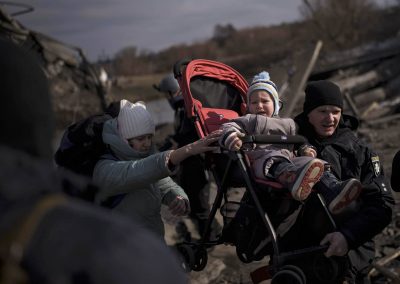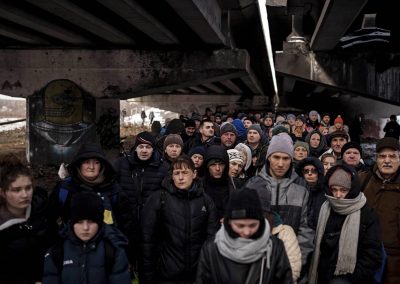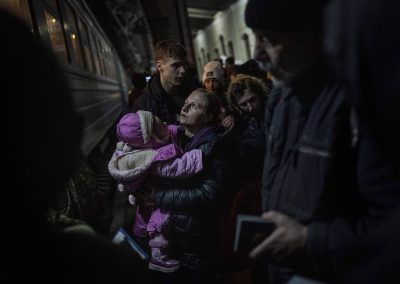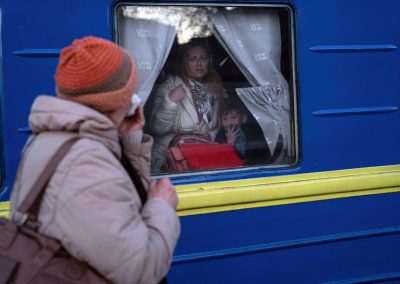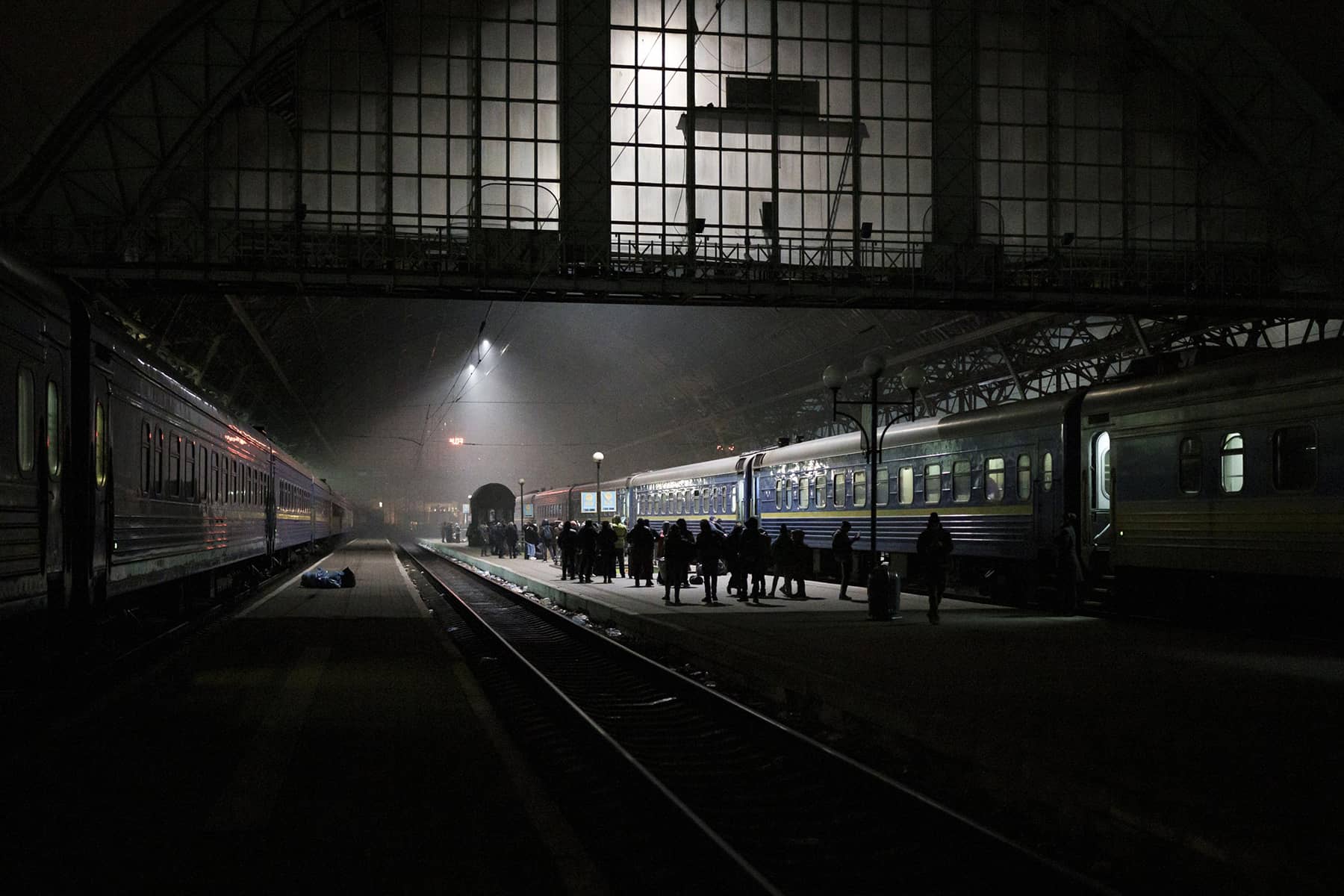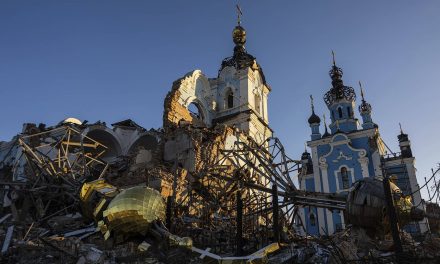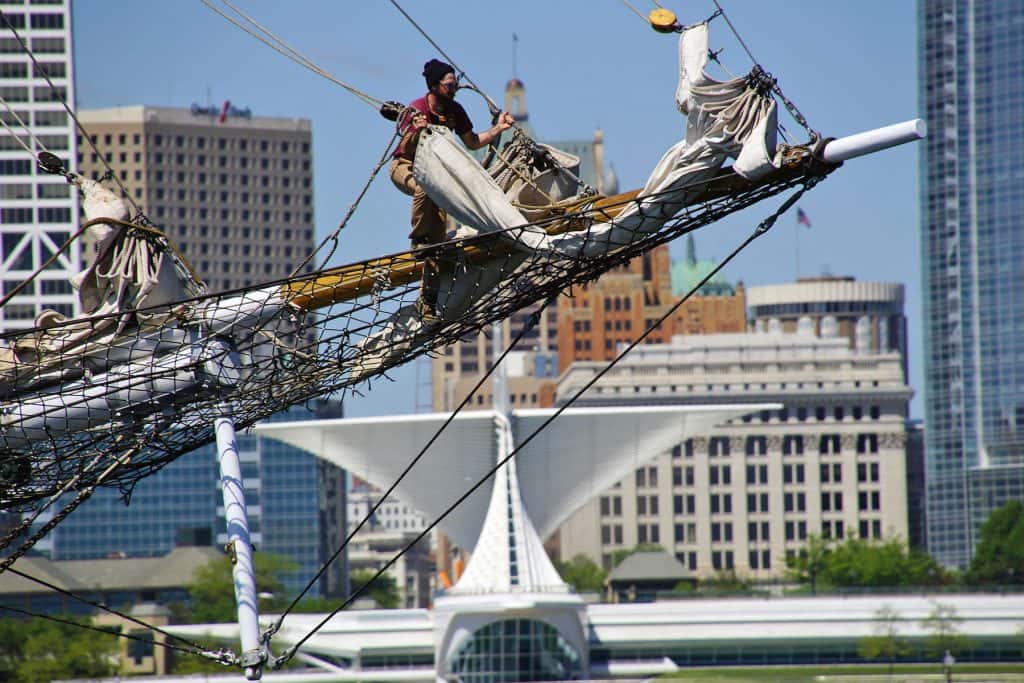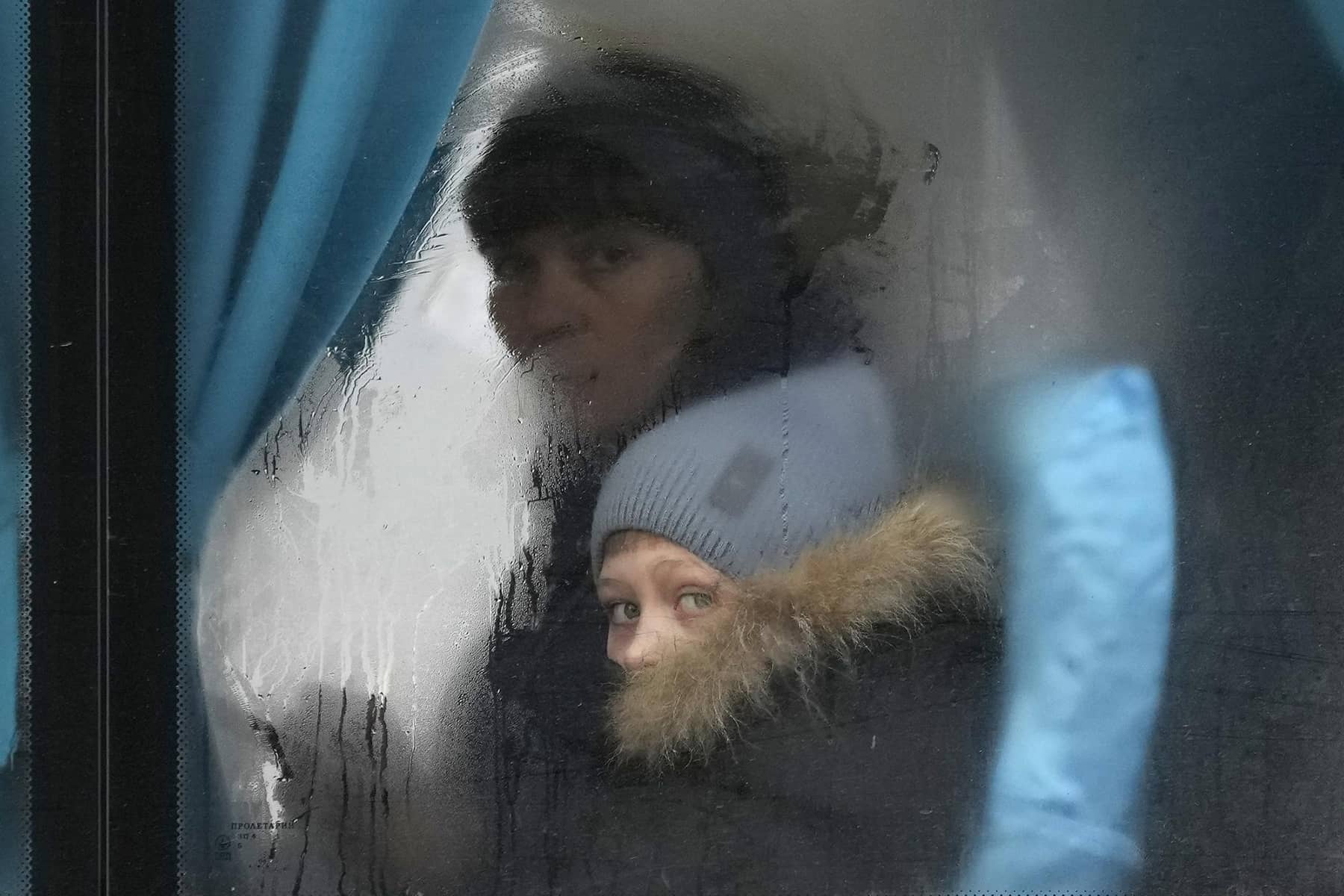
Breaking News: Milwaukee’s sister city of Irpin was just declared liberated from Russian forces on March 28. According to Irpin’s Mayor Oleksandr Markushyn, civilians were not yet allowed to return to the city, which is located just northwest of Kyiv. There remains a high risk of further attacks by Russia.
Every few minutes, an ambulance or an unmarked white van arrives at a dusty courtyard on the western outskirts of Kyiv and an elderly, frail person is helped at times by stretcher from the back.
These are some of the last residents of Irpin, a commuter town a few miles from Kyiv. They are those who were too old, too frail or too sick to leave earlier. Instead they have endured a month of hell as Russian forces pushed into the surrounding area during the first days of the war. The town has seen heavy fighting and has come under intense Russian bombardment.
Volunteers hand out tea and sandwiches to the new arrivals, and those who are fit to travel arrange rides to relatives in the city or further afield. Others are stretchered into a makeshift medical tent and then transferred to hospitals or care homes.
Not everyone makes it. On March 25 a woman arrived with an open leg wound, apparently caused by a mortar attack. She died the next day in hospital.
On March 26 afternoon a tiny woman who appeared to be well into her 90s sat shivering on a chair, wrapped in a green blanket and staring into the distance, shocked, confused and unable to speak.
Tamara Osypchuk, 72, was a more lively evacuee, crying with joy as she was able to get through by phone to her daughter, who lives in Britain, for the first time in a week and inform her she was safe.
“I live on the ninth floor and I have problems walking. Today is the first time I’ve been outside in three years,” she said, cloaked in a floor-length fur coat. While most remaining Irpin residents now sleep in basements, she had spent the past month in her apartment, wondering if each explosion would be her last.
“The noise outside was incredible. All the time: bam, bam, bam,” she said, shouting at the top of her voice to indicate the noise. The opposite corner of her apartment building was blown off, but her flat somehow remained unscathed. She said frequent prayer had stopped her from panicking.
“You have to look death in the eyes and not be scared. You should live as a human being, and leave this earth as a human being, with dignity. I wasn’t going to sit in any basement,” she said.
Irpin was one of a number of towns west of Kyiv the Russians pushed towards after landing forces at the nearby Hostomel airbase in the first few days of the invasion. However, Russia’s plans to encircle or seize Kyiv quickly became bogged down in fighting. Ukrainian forces now claim to control 80% of the territory of Irpin, and to be close to encircling Russian troops in the wider area. Heavy fighting continues.
Since early March there has been no gas, water or electricity in Irpin, and almost no medicine.
Ukrainian forces blew up the bridge linking Irpin to Kyiv early in the war, to halt the Russian advance on the capital, meaning residents could only leave by crossing on foot across the ruins, which are strewn with abandoned, destroyed vehicles and still come under frequent Russian fire.
For Oleksiy Ignatenkov, a 41-year-old businessman who coordinates a group of volunteers helping with evacuations from Irpin, the refusal of some residents to leave is infuriating.
“We sometimes go to the same places again and again and beg them, but they won’t go,” he said, looking harried and exhausted.
Evacuations have to be coordinated so that volunteers or soldiers in Irpin bring the residents to the bridge, carry them across, and are then met by more volunteers on the other side, who drive them a few minutes to the outskirts of Kyiv, where the booms in the distance are a constant reminder of what is happening in Irpin.
“The evacuation route comes under mortar fire two or three times a day. It’s like playing Russian roulette every time,” said Ignatenkov.
On March 24 two volunteers died during an evacuation attempt, he said, showing on his phone a video of the car after the attack, scarlet pools of blood in the front seats. He asked not to name the victims.
Alexander Kolomiets, a 27-year-old trainee pediatrician who performs standup comedy in his spare time, was one of the few young people to remain in Irpin after the first week of fighting. He described a month of close shaves and near misses.
“One morning I was getting water from the well and suddenly I heard noises, and I just jumped into the well and grabbed on to the sides with my arms and legs, like Spider-Man. I don’t know how I did it but it saved my life as there was shrapnel flying everywhere,” he said.
He tried to feed as many pets as he could. “I was dashing into abandoned apartments where pets remained when there were gaps in the shelling, to quickly feed them,” he said. One house was hit half an hour after he left; another building took a direct hit just before he arrived. In one location he left the attic to look for a cat downstairs, and seconds later a shell hit the roof, destroying the upper floor.
It is not just the shelling that kills, it is also the nervous tension. “I saw old people fighting over bread. Everyone was so on edge. Humor is important in these situations. I stayed to try to cheer people up, I tried to joke with people, and calm them down,” Kolomiets said.
But late one night he heard the terrified screams of an elderly woman. When dawn broke he discovered it had been the grandmother of his childhood friend: her husband had dropped dead from a heart attack, apparently unable to cope with the misery all around.
“We buried him in the courtyard that morning. Can you imagine that? Burying, with your own hands, in your own courtyard, someone you’ve known all your life,” he said.
Another of the weekend’s evacuees from Irpin with enough energy to speak about the ordeal was 45-year-old Svitlana Rohutska, who runs an online construction business and also breeds Schnauzer puppies. She remained in Irpin because she did not want to abandon her dogs.
“I couldn’t leave the puppies. There are big dogs left behind, and they’re all starving and forming packs. They would have eaten my babies,” she said.
She had spent the past month in a basement together with six other people. They had plenty of food but the constant shelling and the poor sanitary conditions became unbearable.
“We were becoming hysterical. Everyone was screaming at each other. Yesterday one of the others died; he either had a blood clot or it was coronavirus, we don’t know. He just died right there. I realized I had to get out. I need to wash, I need a doctor, I need to see a psychologist,” she said.
She crossed the bridge carrying four of her dogs and a cat, and with seven puppies stuffed into a suitcase.
While underground, Rohutska heard Russian soldiers passing on the street above, apparently on the hunt for food and supplies, she said. Another Irpin resident shared photographs taken in the town on March 12, appearing to show Russian soldiers entering private property, and claimed they had been looting local houses. “Those orcs were taking anything they could get their hands on,” she said.
While most people who have left Irpin are relieved to have reached the relative safety of Kyiv, Kolomiets said he planned to return on March 28 in an attempt to persuade more people to leave.
“The people who are left now are the people who really can’t walk: drug addicts, alcoholics and the really old pensioners. These are the people we have to take the most care of,” he said.
Shаun Wаlkеr
Fеlіpе Dаnа, Vаdіm Ghіrdа, аnd Pеtrоs Gіаnnаkоurіs
Originally published on The Guardian as Escape from Irpin: frail residents helped to safety after month of hell
Help deliver the independent journalism that the world needs, make a contribution of support to The Guardian.

